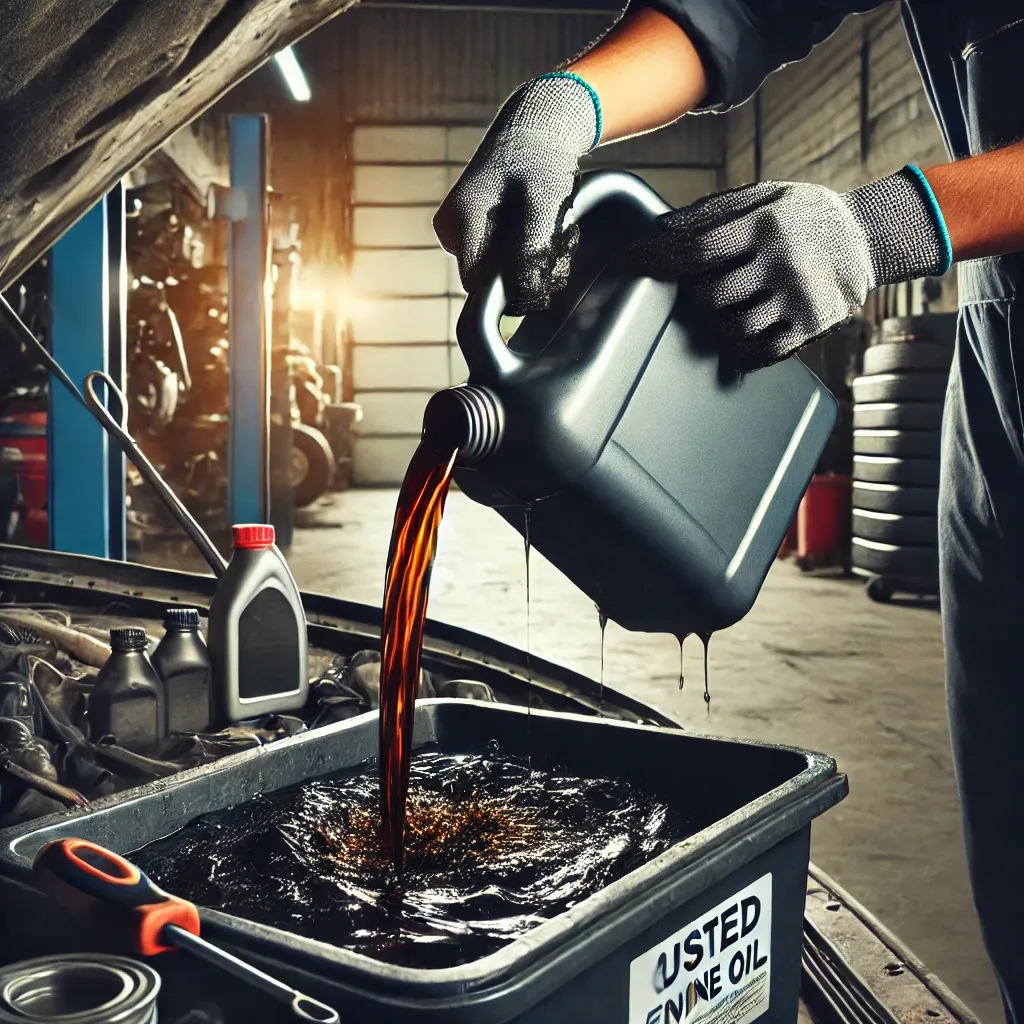Wondering how to discard engine oil safely? It’s crucial for the environment and your local regulations. Learn the steps to responsibly dispose of used engine oil and protect the planet!
When changing your car’s engine oil, the task doesn’t end with just replacing the old oil. Discarding the used oil properly is just as important, as improper disposal can lead to serious environmental damage. So, how should you discard engine oil? What methods ensure both safety and compliance with regulations? Let’s take a deeper look into this crucial process.
Understanding Engine Oil Disposal
Engine oil is a vital fluid that lubricates the internal components of an engine, ensuring smooth performance. Over time, this oil gets contaminated with debris and other substances that degrade its effectiveness. Therefore, it’s important to replace the oil regularly. However, once the oil is changed, the question arises: how do you dispose of the old oil?
Used engine oil contains harmful contaminants, including heavy metals and chemicals, making it hazardous to the environment. Dumping it down the drain, on the ground, or in a regular trash bin can lead to severe soil and water contamination. It is important to understand the risks and take appropriate steps for disposal.
Why Proper Oil Disposal Matters
Proper disposal of engine oil is essential for a few key reasons:
-
Environmental Protection Used engine oil is toxic and can cause significant harm to the ecosystem. If released into the environment, it can contaminate water sources, harming aquatic life and polluting soil.
-
Health and Safety Exposure to used engine oil can be harmful to human health. The chemicals in the oil can cause skin irritation, and if ingested, can lead to more serious health problems.
-
Legal Compliance Many regions have strict regulations on hazardous waste disposal. Improperly discarding engine oil can result in fines and legal consequences.
Understanding the implications of improper disposal makes it clear why this process needs to be handled with care.
Steps to Properly Discard Engine Oil
1. Collect the Used Oil
-
Tools Needed A large container, oil drain pan, and funnel.
-
Process First, drain the used oil from the engine into an oil drain pan. Make sure to do this in a well-ventilated area, ideally in a garage or an outdoor space with enough room to work. The container should be clean and free of any other substances to avoid contamination.
2. Store the Oil Safely
-
Proper Containers Use a dedicated plastic or metal container to store the used oil. Ensure that it is tightly sealed to prevent leaks.
-
Labeling If you need to store it for a period, label the container as “Used Engine Oil” for safety and clarity.
3. Find a Local Disposal Facility
-
Auto Shops and Service Centers Many auto repair shops offer oil disposal services. In fact, some businesses will take the used oil free of charge if they carry out the oil change.
-
Waste Disposal Centers Check with your local waste management services or recycling centers. They often have designated areas for hazardous waste, including used engine oil.
4. Recycle the Oil
-
Recycling Options Did you know that used engine oil can be recycled? Most recycling centers accept used oil and reuse it in the manufacturing of new products or as a base for producing lubricants.
-
Eco-Friendly Alternatives Some companies even refine used oil and reuse it as a motor oil, cutting down on waste and conserving natural resources.
5. Follow Local Regulations
-
Always check the local guidelines or regulations for hazardous waste disposal. Each region has its own rules, and violating them can lead to penalties.
-
Many areas have laws in place that encourage or even mandate the recycling of used engine oil.
Learn more about proper oil disposal here!
The Risks of Improper Disposal
The consequences of improperly discarding used engine oil cannot be overstated. Here are some of the risks involved:
-
Water Pollution Engine oil that is discarded improperly can seep into the ground and eventually find its way into local waterways. A single quart of used oil can contaminate up to 250,000 gallons of water.
-
Soil Contamination Engine oil that ends up on the soil can seep deep into the earth, harming plant life and preventing the land from being used for agriculture or other purposes.
-
Air Pollution Burning used oil can release harmful toxins into the air, including carcinogens, which pose a threat to both human health and the environment.
Proper disposal is a small effort that can have a huge positive impact on the environment, helping to prevent these risks.
How Engine Oil Disposal Relates to Broader Environmental Issues
The act of discarding engine oil responsibly is part of a broader effort to reduce waste and minimize human impact on the environment. Many environmental issues, from plastic pollution to carbon emissions, have similar roots: the misuse or improper disposal of everyday products.
By properly disposing of your used engine oil, you’re playing a part in the global movement toward more sustainable practices. It’s crucial that all individuals and businesses alike adopt responsible disposal habits, as small actions like these accumulate over time, making a big difference.
Find more disposal tips and recycling options!
Conclusion: The Importance of Responsible Oil Disposal
In conclusion, discarding used engine oil isn’t just a matter of convenience; it’s a matter of responsibility. The process is straightforward—collect, store, and dispose of the oil at the appropriate facility. It may seem like a small task, but the impact of proper disposal is significant, contributing to the health of our planet and ensuring that our natural resources are preserved for future generations.
If you ever find yourself unsure of how to handle used engine oil, remember that local auto shops and recycling centers are there to help. By adopting these practices, you not only stay compliant with legal regulations but also become part of a community working toward a cleaner, safer environment.
“The Earth does not belong to us. We belong to the Earth.” – Marlee Matlin
Let’s all do our part to care for it!






